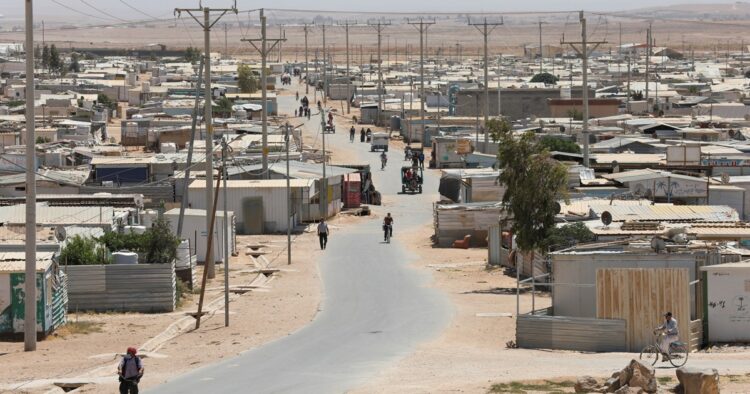Amidst a flurry of global crises, the plight of Syrian refugees risks being overshadowed, with Jordan’s Foreign Minister, Ayman Safadi, sounding a clarion call for attention. Speaking ahead of an EU-led donor conference aimed at addressing the 13-year conflict in Syria, Safadi lamented the dwindling support for refugees in host countries.
The EU conference, while aiming to keep the Syrian conflict and refugee assistance on the agenda, faces challenges as the economic and social burdens on neighboring countries escalate. Diplomatic sources suggest that the European bloc remains divided and struggles to find comprehensive solutions.
Despite President Bashar al-Assad’s consolidation of power within Syria, millions of refugees, predominantly in Lebanon, Turkey, and Jordan, alongside countless internally displaced persons, continue to face uncertain futures.
Funding for refugee support diminishes, exemplified by reductions in aid from organizations like the World Food Programme, exacerbating the strain on host countries.
ALSO READ: “EU Condemns Russia’s Removal of Estonian Buoys, Calls for Explanation”
Jordan, hosting approximately 1.3 million Syrian refugees, underscores the urgent need for sustainable solutions. Safadi emphasizes the imperative of creating conditions conducive to voluntary repatriation, emphasizing that the ultimate resolution lies in the refugees’ safe return to their homeland.
The 8th Syria conference, gathering European and Arab ministers alongside key international organizations, unfolds against a backdrop of vague promises and financial pledges. However, diplomats express skepticism regarding Europe’s capacity to take decisive leadership in the crisis.
The timing of the conference, just ahead of the European elections, adds a political dimension to the issue. Migration, already a divisive topic within the bloc, threatens to further polarize member states, particularly with the rise of far-right and populist parties.
Concerns over a potential surge in migrant boats from Lebanon to Europe, with Cyprus and Italy as major destinations, underscore the urgency of international action. Safadi warns of dire consequences without increased support, stressing the need for the international community to shoulder its responsibility.
As the international community grapples with competing priorities, the plight of Syrian refugees remains a pressing humanitarian concern. Jordan’s impassioned plea serves as a poignant reminder of the urgent need for concerted global action to alleviate the suffering of millions affected by the protracted Syrian conflict.

















Comments